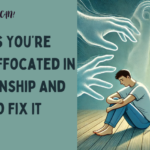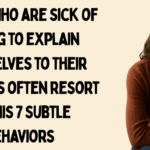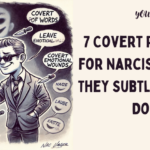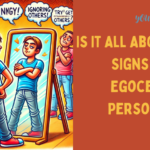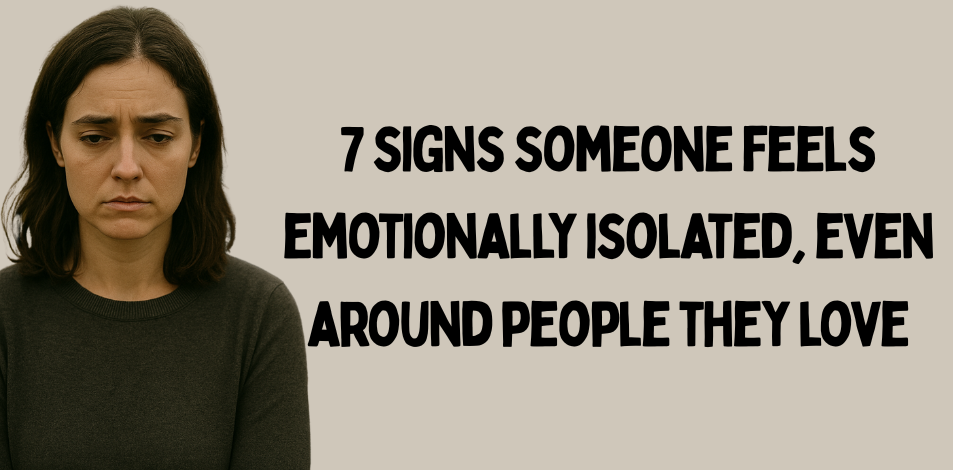
We all know the saying, “No man is an island.”
Yet, how many of us have felt lonely despite being surrounded by loved ones?
It sounds a bit paradoxical, but it’s a reality many of us live with in today’s fast-paced, hyper-connected world.
As you can see, feeling emotionally isolated doesn’t necessarily mean physical loneliness.
Rather, it’s a feeling of separation, misunderstanding, and even disappearance from our loved ones.
So, what does emotional isolation look like? How can you tell if someone is feeling this way?
In this article, we’ll delve into these signs. Understanding is the first step toward healing.
By recognizing these signs in ourselves or others, we can then take steps to reconnect and foster deeper, more meaningful bonds.
Isn’t that the essence of life?
1) They’re always okay
Have you ever met someone who is always okay?
No matter what’s going on around them or their true feelings, their typical response is always, “I’m okay.”
At first glance, this may just sound like a mild-mannered person who doesn’t complain much. However, it could be a sign of emotional isolation.
When someone constantly insists they’re fine, it could indicate that they’re struggling internally but don’t feel comfortable sharing their feelings.
It’s like they’re on an island, surrounded by people but completely alone in their experiences.
It’s okay not to be fine.
Opening up about our struggles isn’t a sign of weakness; it’s a testament to our strength and humanity.
2) They Withdraw from Social Interactions
I remember one time when my best friend suddenly became distant. We used to talk daily, sharing our thoughts, dreams, and fears.
But gradually, those conversations became less frequent.
She started canceling plans, always with a plausible excuse. She’d say, “I’m too busy with work.” Or, “I just don’t feel well.”
At first, I thought she was going through a busy phase. But as the weeks and months passed, I realized something was wrong.
Even though she was surrounded by people who cared, she was isolating herself emotionally.
I felt alone, even in a room full of friends.
It’s important to remember that emotional isolation doesn’t always mean physical isolation. It means feeling disconnected, even when surrounded by others.
If you notice someone withdrawing from social interactions, it could be a sign that they’re feeling emotionally isolated.
3) They Hide Their Feelings With Humor
I have this friend, John, who brings a lighthearted vibe to every party.
He has a captivating laugh and a knack for storytelling, able to turn even the simplest events into captivating stories.
However, behind this cheerful facade, I saw glimpses of someone in pain.
As you can see, John uses humor as a defense mechanism. He laughs at his problems and deflects them with a joke.
This is easier than facing the pain, than admitting loneliness despite the presence of people who care.
RELATED :If you want more successful relationships in your life as you get older, say goodbye to these habits
If you find someone who constantly uses humor to distract from serious conversations or to hide their true feelings, it may be a sign of emotional isolation.
It’s their way of building a barrier between themselves and the world, and a way to cope with the loneliness they feel inside.
4) They find it difficult to express their feelings.
Expressing our feelings can be a difficult task. It requires vulnerability, trust, and the ability to express our deepest feelings.
For those who feel emotionally isolated, this can be even more challenging.
Take my cousin, for example. She has always been strong and silent.
She listens to everyone and offers advice when needed, but she rarely shares her own thoughts or feelings.
Over time, I realized it wasn’t because she lacked anything to share.
Rather, she felt no one would understand or empathize with her feelings.
If you notice someone struggling to express their feelings or constantly belittling them, it could be a sign that they are feeling emotionally isolated.
They may be eager to connect and understand, but they don’t know how to communicate, or they fear being misunderstood.
5) They Show Changes in Sleep Habits
Did you know that our emotional health can directly impact our sleep patterns? It’s true.
This brings me to the next sign—changes in sleep habits.
I had a colleague who started coming to work exhausted and drained. At first, we all attributed it to a stressful work environment.
But over time, it became clear that it was something deeper.
She was emotionally isolated, feeling lonely and disconnected despite being part of a close-knit team.
This emotional turmoil was affecting her sleep, causing insomnia some nights and excessive sleepiness others.
If you notice someone experiencing dramatic changes in their sleep habits, it may be more than just physical exhaustion. It could be a symptom of emotional isolation.
6) They Seem Distant, Even When They’re Present
My neighbor is a lovely elderly lady who lives alone. We often have coffee together, where we talk about everything from the weather to world events.
But there are days when she’s present, but not really present.
Her gaze is distant, and her reactions are delayed. It’s as if she’s physically present but emotionally distant.
RELATED :7 things men value most in their partners, according to psychology
It saddens me to see her like this, as it’s a clear sign of her feeling emotionally isolated.
Despite being surrounded by loved ones, she often feels detached, as if she’s on the periphery of the life around her.
If you notice someone who seems withdrawn or distant, even when they’re with you, it may be because they’re feeling emotionally isolated.
Take the time to connect with them and let them know you see and hear them. Sometimes, a little empathy can make a world of difference.
7) They Show Signs of Anxiety or Depression
Feeling emotionally isolated isn’t just about feeling lonely; it can have serious emotional and psychological consequences, including anxiety and depression.
A dear friend of mine, who was always cheerful and optimistic, began to show signs of anxiety.
She was experiencing bouts of unexplained insomnia, constant worrying, and even panic attacks.
It turned out she was feeling emotionally isolated.
Although she was surrounded by supportive friends and family, she felt alone in her struggles.
If someone around you starts showing signs of anxiety or depression, it could be a sign that they’re feeling emotionally isolated.
It’s important to take these signs seriously. Always offer a helping hand and encourage them to seek professional help when needed. Remember, no one should have to fight their battles alone.
Conclusion
Recognizing these signs in ourselves or those we care about can be an insightful experience.
It’s a gentle reminder that emotional isolation can occur even in loving relationships.
But here’s the bright side—understanding is the first step toward healing.
If you notice these signs in yourself, remember: it’s okay to ask for help.
Reach out to a trusted friend, family member, or even a professional. You are not alone, even if it feels like it.
If you see these signs in someone else, offer empathy.
Listen them and offer a reassuring word. Sometimes, knowing that someone cares makes all the difference.
None of us lives in isolation, no matter how we feel. We are all connected, and each of us has our own struggles and triumphs.
Remembering this can be the first step toward breaking through the barriers of emotional isolation.
Ultimately, in the beautiful tapestry of life, every thread—every connection—adds richness and depth.
Let’s make sure no one feels alone on this journey.

